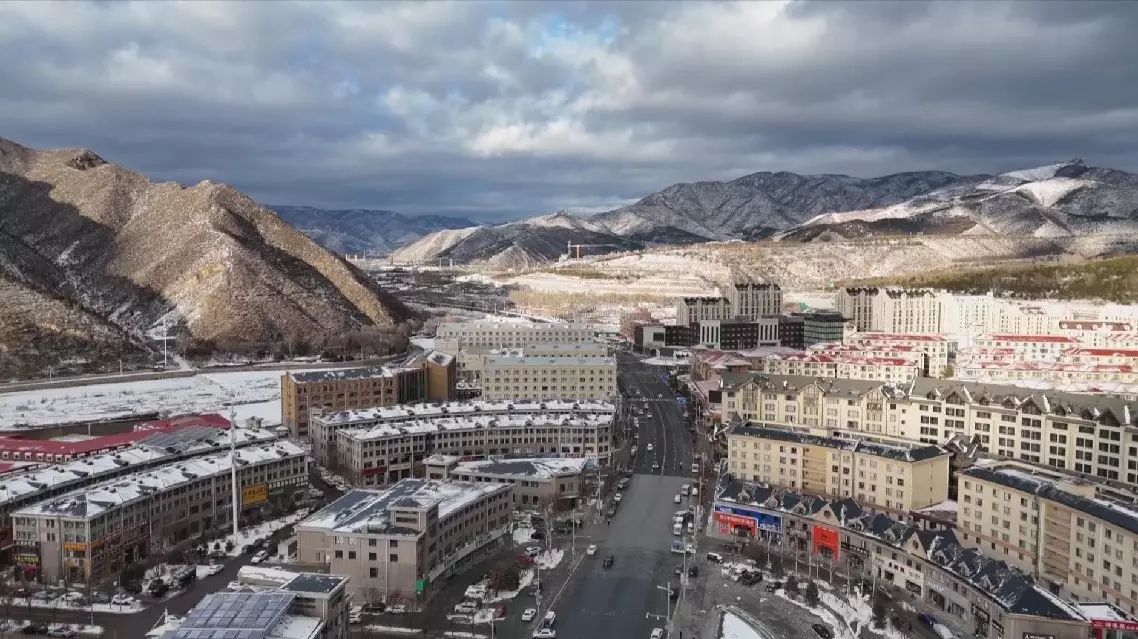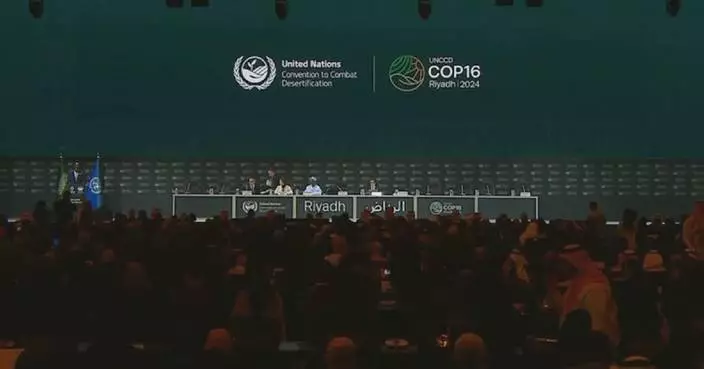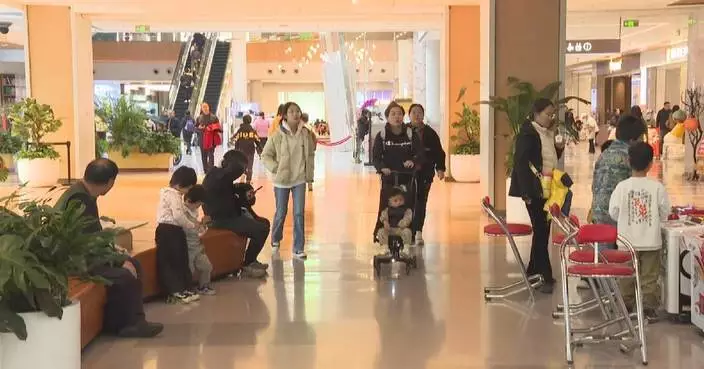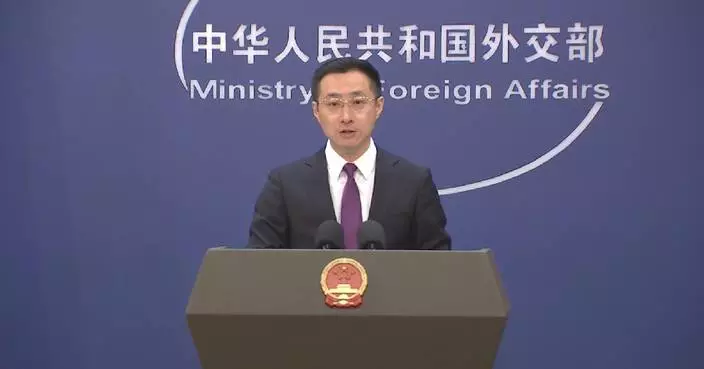Kazan, a city in western Russia under the spotlight by hosting the 2024 BRICS Summit, has seen remarkable changes in its eco-environment with the joint efforts of Chinese and Russian engineers on the Kaban Lakes waterfront project, which has restored the polluted lake system to its original spender.
As one of Russia's three premier historical cities alongside Moscow and St. Petersburg, Kazan, capital of Russia's Tatarstan Republic, is home to Tatarstan's largest lake system -- Kaban Lakes. The renovation project for the lakes represents a fruitful collaboration between China and Russia in advancing green urban development.
"We have set a very ambitious goal: not only to enhance the urban environment but also to prioritize the improvement of water resources, allowing citizens and athletes to better engage in water activities and training here, and making the lakes part of city life," said Nailya Zinnatullina, director of the Institute of Urban Development of Tatarstan.
Once severely polluted, Kabana Lakes were short of public facilities. In 2015, the Kazan government launched a global call for proposals to revitalize the lakes. A joint team of Russian and Chinese designers stood out with their theme "Resilient Ribbons, Kazan's Immortal Treasure," showcasing Chinese wisdom and contemporary landscape design philosophy on an international stage.
"I remember those meetings where our Chinese colleagues came to us and our team visited China to learn from their experiences. Since Tatarstan had never conducted a similar wastewater treatment project before, working with them on technical and engineering solutions was a very valuable experience for us. It's very important to have such a strong and experienced partner," Zinnatullina said in recalling the collaboration.
According to Zinnatullina, the lakes' ecosystem shares many similarities with the Tanghe River Park in Qinhuangdao, north China's Hebei Province, and the project's design is rooted in the "sponge city" concept proposed by the Chinese team. This multi-layered resilient sponge system aims to regulate the urban hydrological environment, restore biological habitats, and create diverse public spaces --ultimately building the area into a public platform that integrates nature, culture, and transport and offering the city an ecological framework.
The materialized landscape design of Lower Kaban Lake has revitalized the surrounding environment. The area, known locally as the "water garden", boasts a rich variety of plants that continuously purify the waters.
Local tour guide Andrei Kononenko is proud of the area's biodiversity: "Look at how many wildlife we have here! There are many wild ducks. I was just telling the tourists that we also have giant beavers swimming in the water. I often bring many visitors here to admire the water lilies. "
The design also centers around the philosophy of "embracing water", creating safe and accessible waterfront spaces to bring people closer to nature. Green infrastructure perfectly integrates with community activities, educating children about the vital role of water through interactive experiences in open play areas.
"We will not stop the development of the lake system. We will continue to work on renovating the lake area a few kilometers ahead. Of course, we rely on the guidance, ideas, and professional support of the Chinese team. In the future, we will collaboratively refine all these project plans and construction schemes," said Zinnatullina.
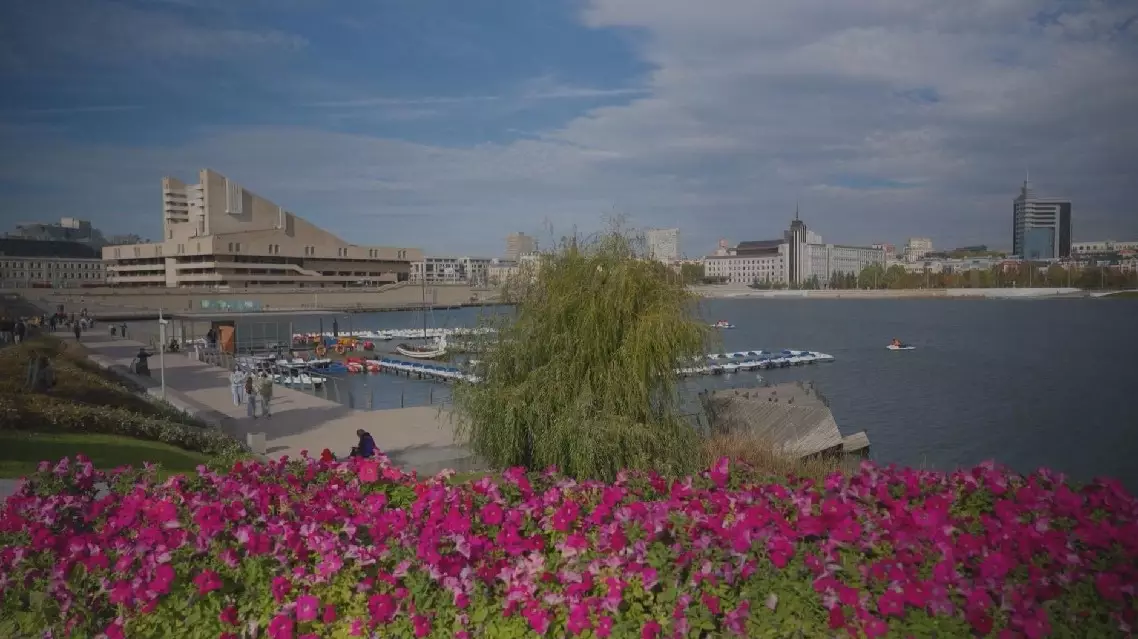
Chinese engineers contribute to green development of Russian city Kazan: experts


